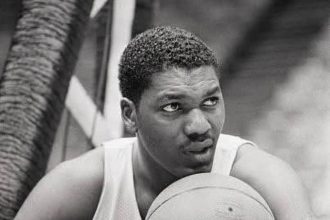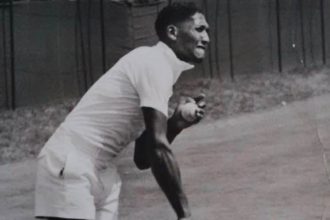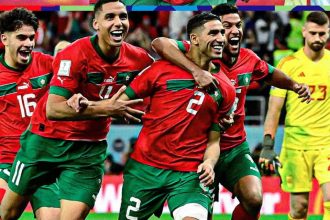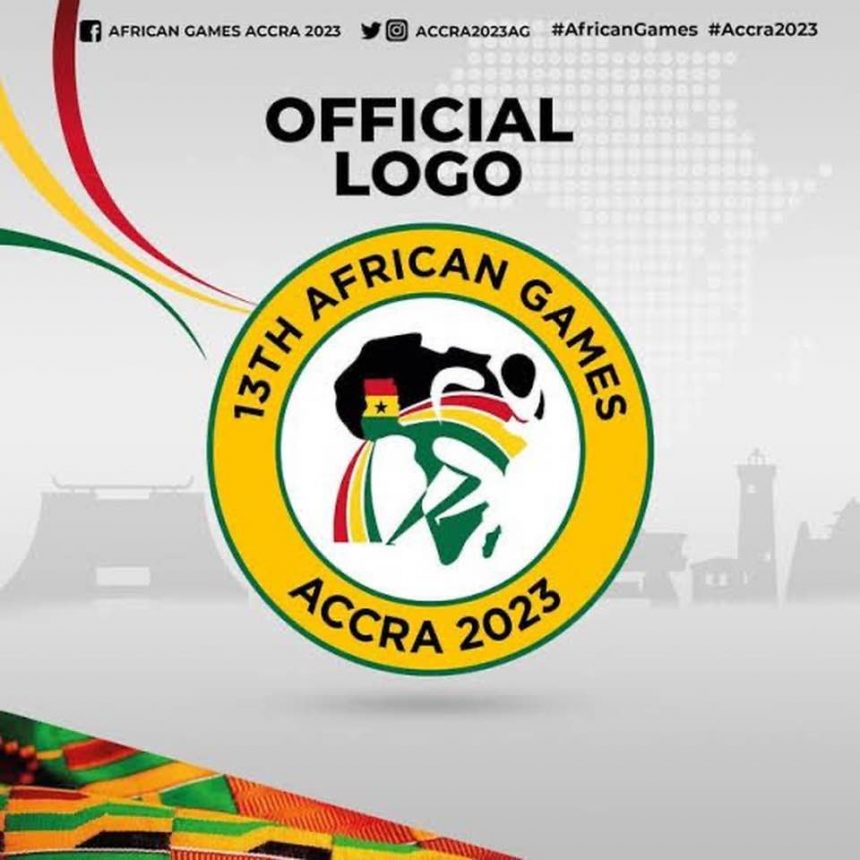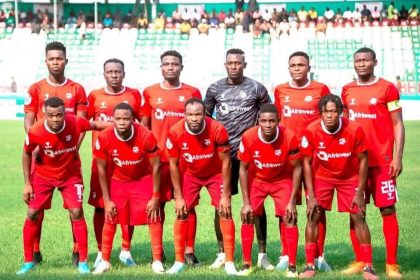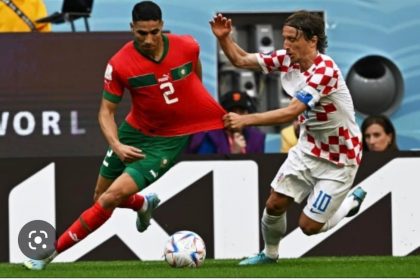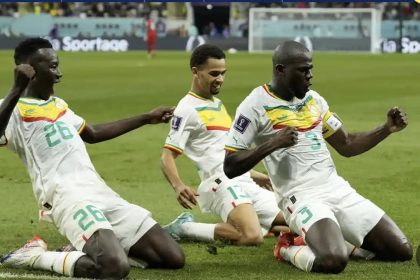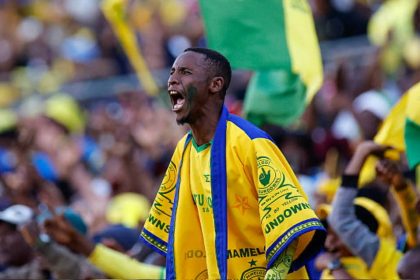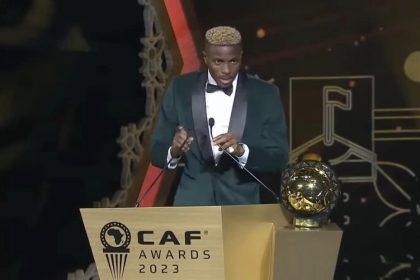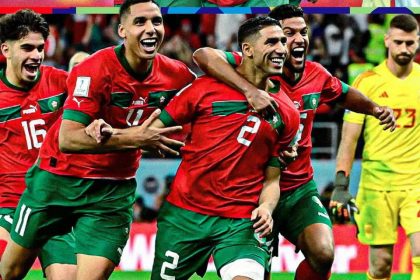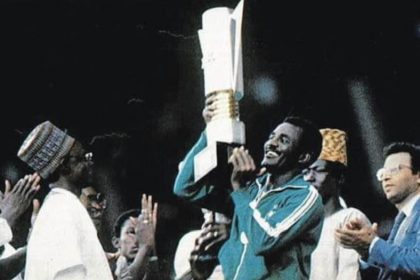The 13th African Games ended on 24 March in Accra with a dazzling closing ceremony in the Ghanaian capital as perennial champions Egypt once again claimed the top spot at the continental multi-sport event. The Egyptian contingent won 103 gold medals at the games, followed by Nigeria and South Africa with 47 and 32 gold medals respectively. The Games, formally known as the All-Africa Games or the Pan African Games, held from 8 to 23 March in the West African country. This year’s games represented an important milestone for Ghana as it marked the first time that the host nation would host the continental sports event. Over 5,000 athletes competed in 29 sports disciplines, including eight that served as qualifiers for the 2024 Paris Olympics. Competitions spanned across sports codes like arm wrestling, athletics, badminton, basketball (3×3), and several others, held in Accra and two sub-host cities, Kumasi and Cape Coast.
The opening ceremony took place on the evening of Friday 8 March in the University of Ghana Sports Stadium, during which the Games were formally opened by the president of the host nation, Nana Akufo-Addo. The ceremony included welcoming speeches and parade of athletes and showcased the host nation’s culture and history, with the theme for this year’s games, “Experience the African Dream,” setting the tone for the celebrations and competitions ahead. The event, which highlighted the rich cultural heritage, sporting prowess, and diversity of the African continent, drew Heads of State, dignitaries, athletes, officials, and spectators from across Africa, signifying the start of the highly-anticipated games.
The host nation went all out to present its cultural treasures with an array of traditional dances, music, and artistic performances. Top Ghanaian musicians, including the vibrant award-winning dancehall artist, Shatta Wale, the charismatic award-winning Afrobeat singer and songwriter King Promise, and South African sensation Kamo Mphela, known for her electrifying Amapiano moves and hits like ‘Dalie’, thrilled the audience, adding to the ceremony’s captivating appeal.
In his welcoming speech, Akufo-Addo acknowledged challenges faced by the organizers, adding that it took great courage to persist with the hosting of the Games. “Due to circumstances beyond our control, we were compelled to reschedule the games to March 2024. It required immense courage to persist with the decision to host the games, and I am elated that we pressed on. Today, Ghana stands tall, buoyed by the extensive sporting infrastructure we’ve established for these games,” Akufo-Addo said.
Akufo-Addo implored all participants to embody the highest standards of integrity and sportsmanship. “I urge all competitors to engage in these games with the utmost integrity and sportsmanship, upholding the principles of fair play and mutual respect.”
Addressing the significance of sports in the continent’s development, the AUC Chairperson, Moussa Faki Mahamat, commended the athletes, urging them to engage in fair competition. “African athletes, you have brought honour to the continent with your achievements. As ambassadors and role models, I urge you to engage in fair competition, exemplify sportsmanship, and inspire the next generation,” remarked the AUC Chairperson.
The historical roots of the African Games trace back to a General Assembly of African Ministers of Youth and Sport in Dakar, Senegal, in 1963, leading to the inaugural event in Brazzaville, Congo, in 1965. The success of these games led to the creation of the Supreme Council for Sports in Africa (SCSA), which was recognized by the Organization of African Unity (OAU) as the official coordinating body for continental sports. In 2013, the SCSA was dissolved, transferring all functions to the African Union Commission, and in 2016, the African Union Sports Council Secretariat was established to further sports development and coordinate the African Games.
The African Games, a property of the African Union and coordinated by AU Sports Council, are convened quadrennially, acting as a precursor to the Olympics. They serve as a celebration of athletic excellence, African cultural heritage and unity. The event plays a pivotal role in advancing youth education, gender equality, and social cohesion, aligning with the aspirations of Agenda 2063 for “The Africa We Want.”
The Games were established to foster high-performance sports and cultural exchanges among African Union Member States. Organized every four years, these games adhere to rules set by the African Union Specialized Technical Committee for Youth, Culture, and Sports (STC-YCS). The African Union Sport Council Technical Committee for the African Games oversees the evaluation of hosting bids and the overall organization of the games.
Organizational efforts for the 2024 Games involved collaboration between the Association of National Olympic Committees of Africa (ANOCA) and the Association of Africa Sports Confederations (AASC). This partnership, established through an agreement signed in February 2023 in Addis Ababa, Ethiopia, emphasized the collective commitment towards the successful execution of the 13th edition of the Games.
In Ghana, Egypt changed the course of history by winning a record-breaking 103 gold medals to emerge as the top nation in the competition, making this year’s victory the third in a row and the fourth time in the last five editions of the Games. Before now, no country had ever reached a huge milestone like that in the history of the African Games. Egypt is also the nation with the most silver medals in the event, with 47, followed by Algeria with 38. The situation is reversed when it comes to bronze medals. Algeria has more than the rest with 48, while Egypt has 43.
The athlete who contributed the most to Egypt’s milestone at the African Games was swimmer Marwan Elkamash, who won five gold medals and was tied with South Africa’s Caitlin De Lange as the best athlete of the whole event. Farida Osman won four gold medals and Abdalla Nasr, Eslam Abouelwafa, Elsayed Aly, Mariam Hesham, Karim Ibrahim, Shimaa Khaled, Abdelrah Mohamed, Basma Ramadan, Sara Samir and Ahmed Sayed all won three gold medals.
In the final the medal table, Nigeria secured second place with 121 medals (47 gold, 34 silver, and 40 bronze). Weightlifting emerged as the goldmine for Nigeria, with lifters amassing an impressive 16 gold medals alongside 10 silver and 6 bronze medals. Athletes like Adijat Olarinoye, Rafiatu Lawal, and Edidiong Umoafia achieved triple gold feat in their respective weight categories. Athletics followed closely behind as another major contributor to Nigeria’s success, delivering 11 gold medals at the Games.
Current world record holder in the 100m hurdles, Tobi Amusan, successfully defended her 100m hurdles title, becoming the first high hurdler to win three consecutive gold medals at the Games. Commonwealth champion and a three-time African senior champion in the long jump, Ese Brume, made history by becoming the second woman to retain a long jump title after Nigeria’s Modupe Oshikoya. Chidi Okezie delivered another historic moment, winning Nigeria’s first 400m gold medal in 37 years, while Chukwuebuka Enekwechi secured his place in history as the first Nigerian to retain a shot put gold medal at the Games. Nigeria’s Chinecherem Nnamdi also set a new national record of 82.80m in javelin, adding his name to the list of history makers.
South Africa occupied the third spot with 106 medals (32 gold, 32 silver and 42 bronze) as Algeria ranked the fourth best country at the event with 115 medals (29 gold, 38 silver and 48 bronze). Tunisia completed the Top 5 with 87 medals (22 gold, 27 silver and 38 bronze), while Ghana, despite a poor start to the event, finished in sixth position with 19 gold, 29 silver and 21 bronze medals. The host nation won an unprecedented 69 medals at the games, a feat which also represented the nation’s biggest medal haul at any multi-sports event.
The University of Ghana Sports Stadium in Accra, which recorded so many impressive sporting achievements during the Games played host to a vibrant ceremony that showcased the best of African music, with performances by artistes including the award-winning dancehall entertainer, Stonebwoy and Afro-pop singer Wiyaala. Stonebwoy, the headline performer at the event, left the crowd yearning for more after putting on a spectacular 10-song set performance at the fully-packed 20,000-capacity stadium to close out this year’s event. His team of dancers, the flash lightning and his energy on stage combined perfectly to crown an evening of entertainment after weeks of sporty action on the field and tracks. Wiyaala, also known as the Lioness of Africa, delivered an electrifying performance that blended Afro-pop, rock, and traditional African music. Her energetic rendition of hits like ‘Rock My Body’, Tinambanyi’ and ‘Make Me Dance’ had the audience on their feet, celebrating the spirit of the games.
Closing the games, President Akufo-Addo urged the athletes to train harder to win more medals as the countries prepare for the 2024 Paris Olympics. “May the memories of these Games inspire us to continue to work harder together towards a brighter, more prosperous, and more united future for Africa,” Akufo-Addo said.
With the next African Games taking place in 2027 in Cairo, Egypt, the host country no doubt will have another opportunity to shine even brighter than it did at the 13th African Games in Ghana.
References:
- Medal Count: 13th African Games Accra 2023
- “We will build on the success of Team Ghana at African Games—Sports Minister” GhanaWeb 26 March 2024
- Press Release: “The Grand Opening of the 13th African Games kicks off with Vibrant Festivities in Accra Ghana” Mach 18, 2024 African Union Commission
- Press Release: “The 13th Edition of The African Games under the “Experience the African Dream” March 8, 2024 African Union Commission


